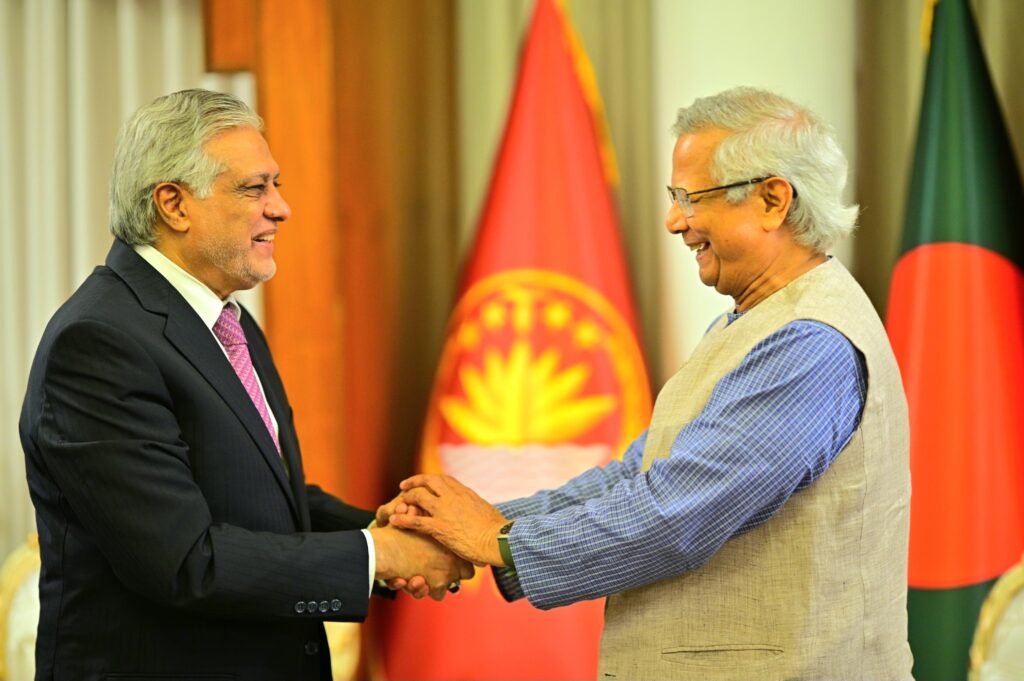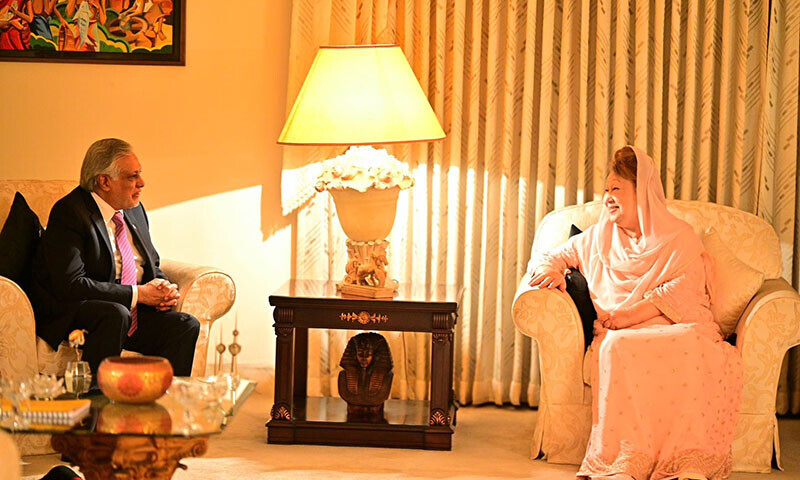Sarosh Mustafa

Dhaka: Pakistan’s Deputy Prime Minister and Foreign Minister Ishaq Dar has concluded a historic two-day visit to Bangladesh, marking the first official visit by a Pakistani foreign minister in more than 13 years. The trip is being hailed as a potential “reset” in relations between the two estranged nations, though analysts caution that deep-seated historical issues remain unresolved.
A Journey Weighted with History
The timing of this visit is critical. Bangladesh, now under the interim stewardship of Nobel Laureate Prof. Muhammad Yunus, has been recalibrating its foreign relations since the political transition of 2024. For Pakistan, engaging Dhaka is both symbolic and strategic: Bangladesh remains the frontier where history often overshadows diplomacy.
For decades, unresolved questions—including Dhaka’s demand for a formal apology over the events of 1971, the repatriation of stranded Pakistanis, and division of pre-1971 assets—have clouded bilateral ties. Against this backdrop, Dar’s visit carried both high expectations and cautious skepticism.

Dar’s High-Level Meetings
During his stay in Dhaka (August 23–24), Ishaq Dar held wide-ranging meetings with key Bangladeshi leaders, including:
- Chief Adviser Prof. Muhammad Yunus
- Foreign Affairs Adviser Md Touhid Hossain
- Commerce Adviser SK Bashir Uddin
- Opposition leaders including Khaleda Zia and representatives of Jamaat-e-Islami
These interactions focused on rebuilding trust, enhancing trade, and expanding diplomatic, cultural, and academic cooperation. Officials familiar with the talks suggest that both sides showed willingness to move forward, though contentious issues like the 1971 legacy remain on the sidelines.
Six Agreements Signed
The visit culminated in the signing of six key agreements to institutionalize cooperation:
- Visa Abolition Agreement for diplomatic and official passport holders
- MoU establishing a Joint Working Group on Trade
- MoU between Foreign Service Academies of both nations
- MoU between APP (Pakistan) and BSS (Bangladesh) for media collaboration
- MoU between IPRI (Pakistan) and BIISS (Bangladesh) for joint research
- Cultural Exchange Programme to foster people-to-people ties
Pakistan’s MFA Spokesperson Shafqat Ali Khan called the agreements a “significant milestone” in bilateral ties, noting they will strengthen cooperation in trade, economics, diplomacy, media, and cultural exchanges.
Pakistan–Bangladesh Knowledge Corridor
Coinciding with Dar’s visit, Pakistan also launched the “Pakistan–Bangladesh Knowledge Corridor”, a landmark educational initiative offering 500 scholarships to Bangladeshi students for higher education in Pakistan over the next five years. One-fourth of these scholarships are reserved for medicine.
In addition, 100 Bangladeshi civil servants will receive specialized training in Pakistan, while the number of scholarships under the Pakistan Technical Assistance Program (PTAP) has been expanded from 5 to 25 annually.
Between Optimism and Realism
Optimists view this visit as a turning point—a chance for two South Asian nations to rise above history and chart a cooperative path in trade, education, and cultural diplomacy. Given shifting global alignments and South Asia’s economic challenges, stronger Pakistan–Bangladesh ties could reshape dynamics within SAARC and the Indo-Pacific region.
Realists, however, warn that unless Dhaka’s long-standing demands on 1971 are addressed, these agreements may remain symbolic. The true test lies not in what was signed in Dhaka this week but in whether both capitals can sustain trust and move beyond ceremonial diplomacy.
The Road Ahead
As Ishaq Dar’s visit concludes, the question remains: Will this become a genuine reset in Pakistan–Bangladesh relations or merely another diplomatic mirage? For now, the signing of six agreements and the launch of the Knowledge Corridor signal hope, but history has shown that only consistent follow-through can turn hope into reality.























